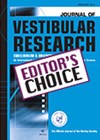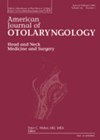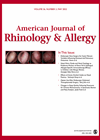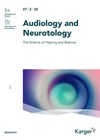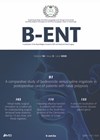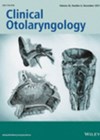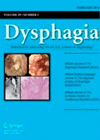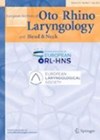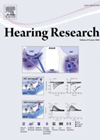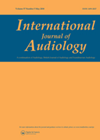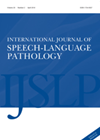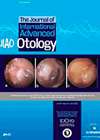
Journal Reviews archive for September 2022
Obstructive sleep apnoea in common vestibular disorders
The importance of getting a good night’s sleep is often acknowledged but may be particularly difficult to achieve for those with obstructive sleep apnoea (OSA). In addition to high blood pressure, increased risk of stroke and depression, balance problems may...
Prophylactic gastrostomy tubes in advance of chemoradiotherapy for advanced head and neck malignancies – are they worthwhile?
It is well recognised that radical chemoradiotherapy (CRT) for head and neck cancers can significantly affect swallowing, especially if radiotherapy is delivered to the hypopharynx and/or both sides of the neck. As such, prophylactic gastrostomy tubes are often advocated in...
Does sleep quality improve when we adequately treat CRS?
In addition to the well-known symptoms associated with chronic rhinosinusitis (CRS), patients often suffer with poor sleep quality which is also detrimental to health and wellbeing. This meta-analysis looked at 35 papers reporting outcomes for CRS patients post surgery on...
Steroid use in acute acoustic trauma
Acute acoustic trauma (AAT) injuries include noise-induced damage to inner and middle ear presenting as hearing loss, tinnitus and vertigo. Classic presentation is sensorineural hearing loss with an intact tympanic membrane. The authors carried out a case-control study in military...
Argon plasma coagulation for epistaxis in HHT
In this study from the Czech Republic, the authors looked at the effectiveness of argon plasma coagulation (a non-contact form of monopolar electrocoagulation) in treating recurrent epistaxis in patients with hereditary haemorrhagic telangiectasia (HHT). The advantage of argon plasma coagulation...
Ramifications of the pandemic on acute paediatric mastoiditis: a national UK audit
Acute mastoiditis is a common presentation in the paediatric population across ENT services worldwide. An initial expectation of a rise in the numbers of acute mastoiditis associated with the initial findings of SARS-CoV-2 (COVID-19) virus presence in middle ear in...
Resolving dysphagia – can we distinguish mild dysphagia from no dysphagia?
Many patients with dysphagia following neurological events can and do experience a resolution of their swallowing difficulties, sometimes without any intervention. However, it is challenging for clinicians to distinguish mild dysphagia from no dysphagia. The question of where to draw...
Inpatient or outpatient thyroidectomy?
This systematic review and meta-analysis discusses the safety of hemithyroidectomy in an outpatient vis-à-vis an inpatient setting. Thyroidectomy has traditionally been performed as an inpatient procedure. Currently, an increasing number of surgeons are performing thyroidectomy in outpatient settings. The main...
Inner ear immunity
There is much speculation regarding the ear’s immune response. The environment in which we live and breathe is getting ever more complex; aspects such as the percentage of the population with autoimmune conditions are on the rise and, therefore, it...
Assessment of audiological needs
A thorough assessment of audiological needs is crucial for a successful audiological rehabilitation. This study concentrated on creating the Québec Audiological Assessment Protocol for Younger and Older Adults (QAAP-YOA) that could be easily adopted in audiological clinics. The authors used...
Nothing about us without us: a how-to guide
Participatory design is an approach that is built around collaboration with users through a process of coproduction, design and creation. Most interventions are designed with the expert clinician researcher as the starting point, who looks at theory, evidence and their...
Virtual reality simulation training for cochlear implant surgery
Temporal bone virtual reality (VR) simulation training has been shown to be a useful tool for learning mastoidectomy. The authors aimed to evaluate the role of VR in cochlear implant (CI) surgery. The study was performed as part of a...

